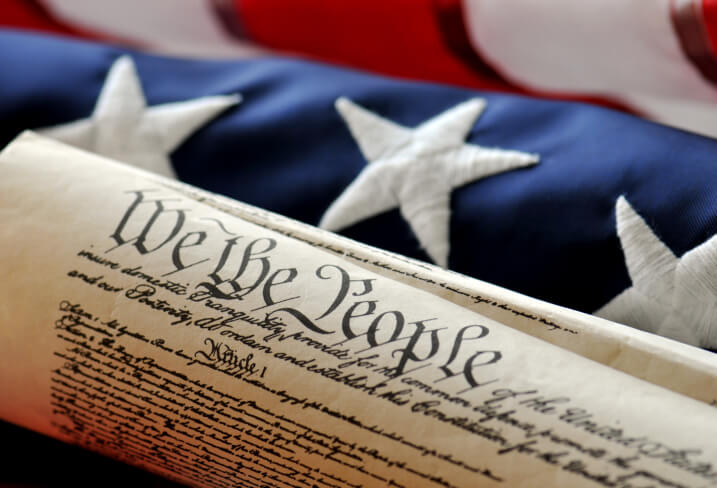Don’t be an idiot… overreach is overreach

Personal Liberty Poll
Exercise your right to vote.
Law enforcement agencies are spying on Americans by using cell phone surveillance systems with little oversight. But the Trump administration is signaling that it’s concerned only with increasing law enforcement authority. That should concern you.
A series of leaks during the Obama administration revealed the extent to which post-9/11 America has evolved into a surveillance state. And each revelation— NSA data sweeps, fusion centers, and other questionable digital snooping— came with renewed outrage and demand for increased oversight of the nation’s law enforcement snoops.
When the Obama administration was reluctant to walk back surveillance powers and its supporters reluctant to make too much noise, conservatives often led the charge against government surveillance tactics.
Unfortunately, many conservatives currently seem pacified by the current administration and congressional makeup. And just as anti-war, civil liberty supporting liberals were alarmingly tolerant of war and overreaching surveillance under Obama, many people who considered Obama overreach a sign of coming tyranny appear poised to support a growth in government power under President Trump.
That seems especially true with regard to policing in the U.S.
Over the past few years, we’ve reported on the growing law enforcement trend surrounding cell phone surveillance technology such as the popular StingRay device popping up at more and more departments.
StingRay-type devices are capable of simulating a cell tower within a given radius, redirecting individuals’ cell phones away from their service provider’s nearest tower location and connecting directly with those users’ phones. The U.S. Department of Justice maintains that police do not need a warrant to do this, so long as they don’t listen in on actual conversations.
In other words, the devices provide law enforcement officials to create detailed logs of individual Americans’ whereabouts—and government officials maintain that this tracking is totally fine without a warrant.
Instead, the information is often conducted using a less formal legal order simply requiring investigators to prove that surveillance conducted under such an order serves a general purpose in an ongoing investigation.
Some states are working toward resident protections against allowing law enforcement such broad power to use the devices—but the process is slow. A bill currently sitting in the Rhode Island House, for instance, would block federal or state use of cell site simulators without judicial approval for a specific purpose.
But the slow and piecemeal introduction of legislation protecting Americans from this sort of tracking on a state-by-state basis leaves millions of Americans vulnerable to unregulated government snooping .
That’s the subject of an upcoming forum hosted by the libertarian-leaning CATO Institute, which warns:
The interaction of law enforcement and surveillance technology promises to be one of the most important civil liberties issues of the near future. Our current privacy jurisprudence is sorely outdated and often inapplicable to the issues presented by modern technology and law enforcement practices.Whether we’re talking about cell phone tracking, persistent aerial surveillance, or nationwide biometric databasing, the ability of the government to invade and regulate the most intimate spheres of our lives continues to grow. It is incumbent on policymakers and jurists to ensure that our legal framework and constitutional principles keep pace with these growing threats to our privacy.
Unfortunately, the new president and his administration appear to have little interest in reforms that would weaken government power to unleash the power of law enforcement on its subjects.
President Trump, for instance, reportedly told a Texas sheriff that he would personally help “destroy” the career of a lawmaker in that state working to make it harder for the government to seize property via civil forfeiture.
“There’s a state senator in Texas that was talking about legislation to require conviction before we could receive that forfeiture money,” Sheriff Harold Eavenson, incoming president of the National Sheriff’s Association, told Trump.
“I want to hear his name. We’ll destroy his career,” Trump told the lawman, according to McClatchy.
Meanwhile, Trump’s pick to head the Department of Justice, Alabama Senator Jeff Sessions, has civil liberty advocates throughout the nation extremely concerned.
That’s because Sessions, a lifelong proponent of the failed U.S. war on drugs, has vowed to bring “law and order” back to the country.
What does that mean exactly? We don’t know. Trump and his administration say it means respect for cops. Respect for cops, however, is a pretty tough thing for government to create. What government can do is give more power to cops, more arrest authority, fewer restrictions on use of force, and more military equipment—that is, if by respect we mean fear.
What we do know is that fear and liberty haven’t coexisted very well over the course of history. It doesn’t matter whether we’re talking about fear of government or fear of lawlessness.
For anyone claiming to be a conservative, it’s very important to remember what led the U.S. to its current state of government surveillance overreach— A Republican administration and nationalism. It was then allowed to fester and grow—the surveillance state, that is— as the leftists who were among the biggest opponents of Patriot Act-style laws were lulled into a sense of security by having their man in the White House.
What we’re saying here, is that these things are cyclical. And if you support government’s efforts to increase the power of its people handlers just because you like the current administration, you’re a useful idiot.

No comments:
Post a Comment
Thanks for commenting. Your comments are needed for helping to improve the discussion.